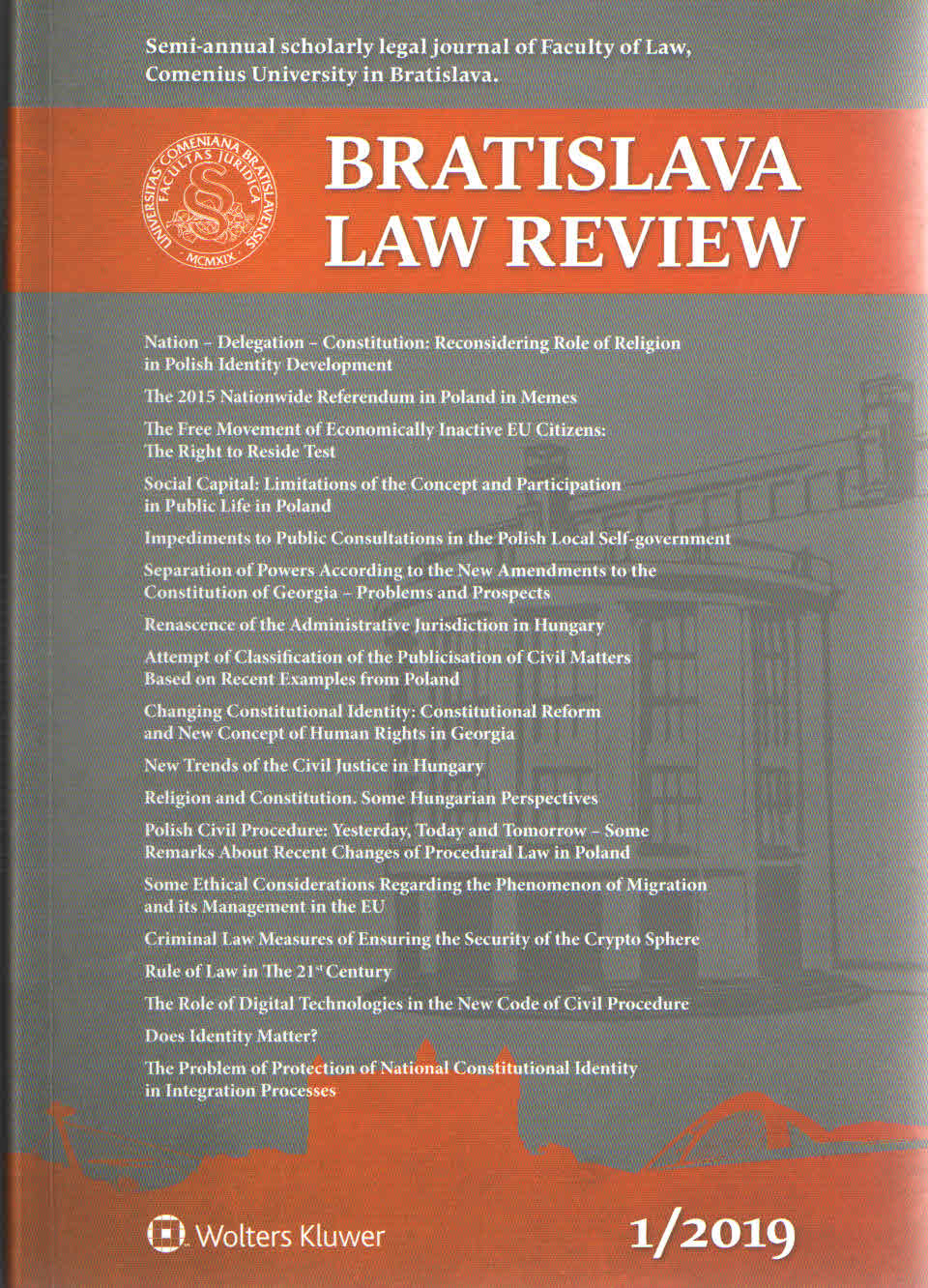NATION – DELEGATION – CONSTITUTION: RECONSIDERING ROLE OF RELIGION IN POLISH IDENTITY DEVELOPMENT
NATION – DELEGATION – CONSTITUTION: RECONSIDERING ROLE OF RELIGION IN POLISH IDENTITY DEVELOPMENT
Author(s): Wojciech Włoch, Anna Tarnowska, Agnieszka Bień-KacałaSubject(s): Constitutional Law, Government/Political systems, Politics and religion, Nationalism Studies, Politics and Identity
Published by: Univerzita Komenského v Bratislave
Keywords: delegation; religion; heterogeneity; homogeneity; nation; “constitutional essentials”;
Summary/Abstract: Democratic politics creates a specific ‘chain of representation’. According to Article 104 of the Polish Constitution, the MPs are the representatives of the entire Nation. The understanding of the “entire Nation” allows to determine whether national identity is open and inclusive, or closed and exclusive. One can distinguish two ideal types of a nation: heterogeneous and homogeneous. The first type is connected to the universalist understanding of “constitutional essentials”, the second to the particularistic one. In the paper, we pointed out the elements of heterogeneity in the text of Polish constitutions as well as the elements of homogeneity in the constitutional practice. Religion becomes an important factor influencing the interpretation and application of the constitution. The heterogeneous concept of the nation and the universalist “constitutional essentials” can be narrowed down in the political practice.
Journal: Bratislava Law Review
- Issue Year: 3/2019
- Issue No: 1
- Page Range: 6-25
- Page Count: 20
- Language: English

